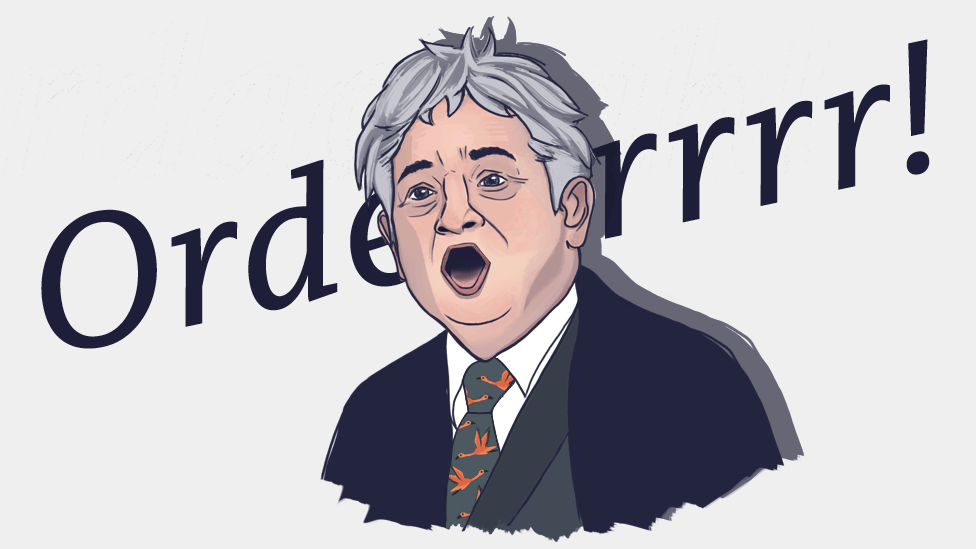New Speaker to disallow unusual parliamentary procedures
- Published
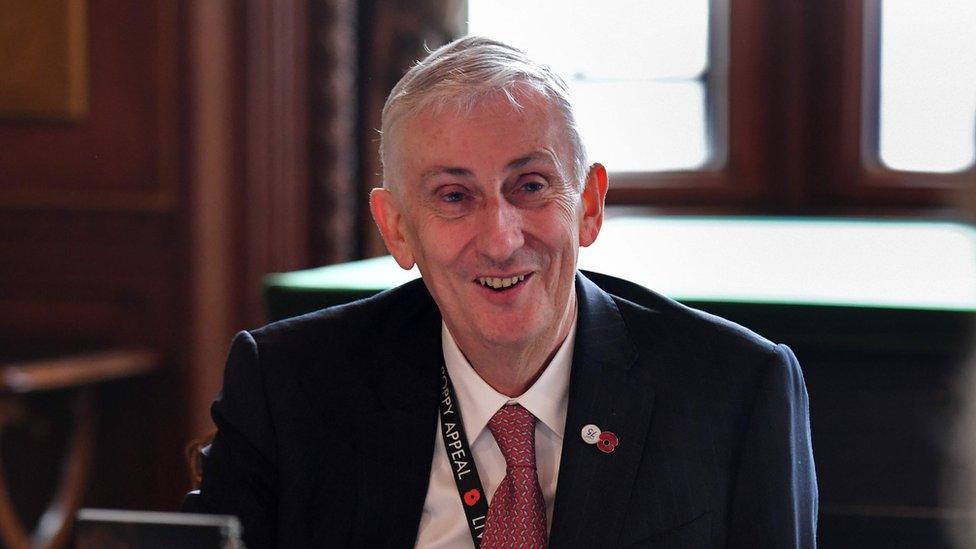
The new Speaker says he will not permit the kind of parliamentary manoeuvres recently used to block a no-deal Brexit allowed by his predecessor John Bercow.
Sir Lindsay Hoyle said he would not allow the procedures used by MPs to seize control of the agenda.
It would make it harder for MPs to derail a government after the election, even if it does not have a majority.
Sir Lindsay said he wanted MPs to agree to change the Commons rules to close off those options.
Speaking on Nick Robinson's Political Thinking podcast, Sir Lindsay did not directly criticise Mr Bercow, but said that if he had been Speaker, he would not have allowed the moves permitted by his predecessor to allow amendments to business motions - the motions which sets the detailed way in which the Commons structures its debates.
Those motions were always supposed to be debated "forthwith", which had been understood to mean that amendments could not be made.
Mr Bercow made the unprecedented decision to allow amendments to be put down - and that allowed a cross party backbench alliance to win a vote to change the agenda and get their proposals debated.
Sir Lindsay said the rules should be clarified - and his approach would make it much harder for a future House of Commons to resist the government of the day.
"Those that may have advantage, now, out of that situation may be disadvantaged if that were to continue.
"The country elects the government, and we don't know what government we're going to have after this, but I'm sure that they won't want to be turned over on a day when they think they're going to get the business through," he said.
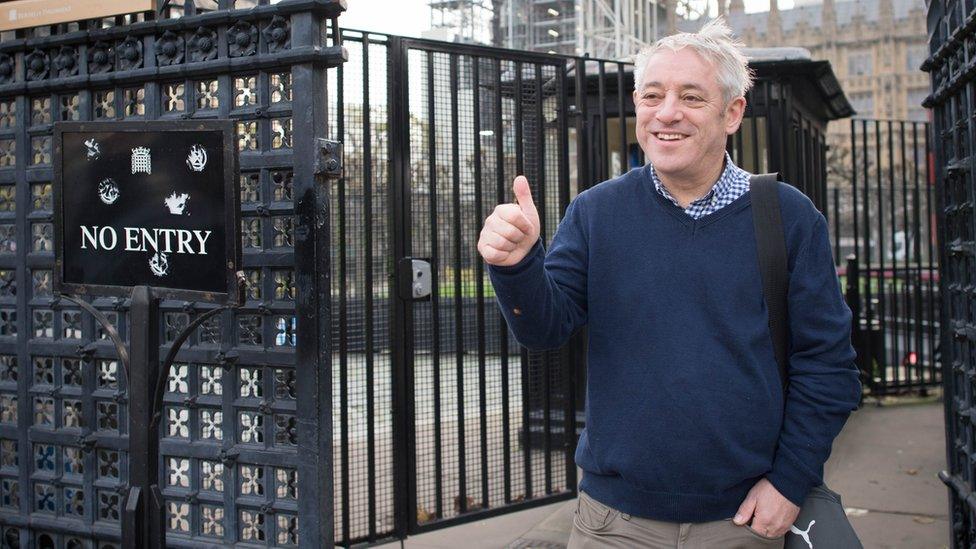
Sir Lindsay takes over from John Bercow.
He said a tidying up of the rules was needed to close loopholes - so there was complete clarity and "nobody could accuse the Speaker" of anything.
"I've come into this job as a referee, and that's where I want to be. It shouldn't be about me, it's about the Chamber," he said.
In the interview, he described how he was in the Chair during the terrorist attack on Westminster, in 2017, in which PC Keith Palmer, who he described as Westminster's "village Bobby" was one of those who was murdered.
"To be told when I'm sat in the Chair there is a policeman dying outside - and that there could be a lone gunman somewhere in the building - is not anything I ever want to go through again."
He said he was "still pinching myself" about being addressed as Mr Speaker - adding he was "walking on air" and it was a great achievement for a "lad from Lancashire", to be "the Commoner of the Land".
He also signalled that the next House of Commons might rethink the decision to move out of the Victorian Palace of Westminster for a multi-billion pound "restoration and renewal" programme, instead seeking to remain on the famous green benches
He said the forthcoming election could see the biggest turnover of MPs since 1997, "and they may just say we want to re-look at this, we want to revisit it".
He added that the House "could still be five to six years away from moving."
Sir Lindsay also revealed he has a menagerie of pets named after political figures, from an African grey parrot named Boris, who squawked "Order! Order!" in his wife's voice, to a Rottweiler named Gordon, after Prime Minister Gordon Brown.
They are joined by a tortoise named Maggie, after Mrs Thatcher - "because she had a hard shell and was not for turning" - and a cat named Patrick - because he was very "posh" and reminded him of the former Conservative MP Patrick Cormack.
- Published4 November 2019
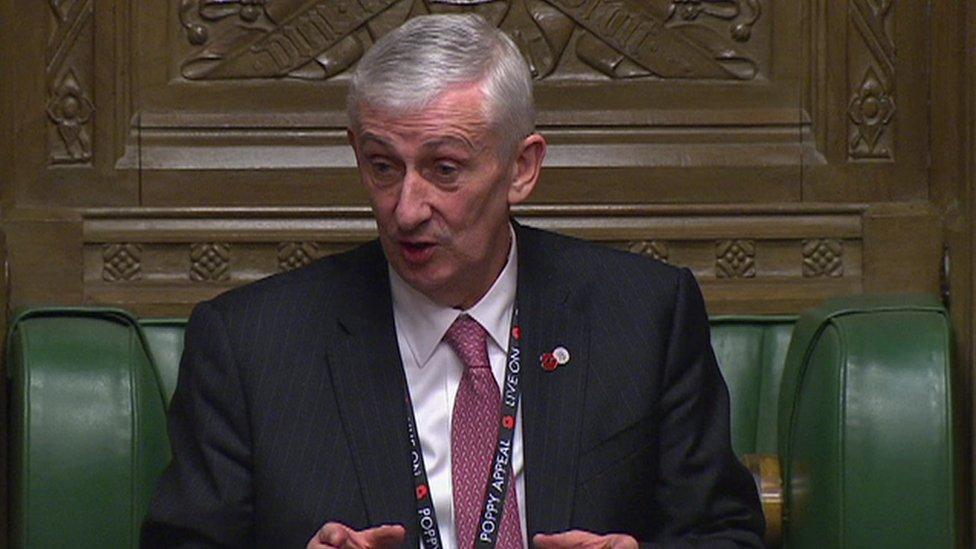
- Published6 November 2019
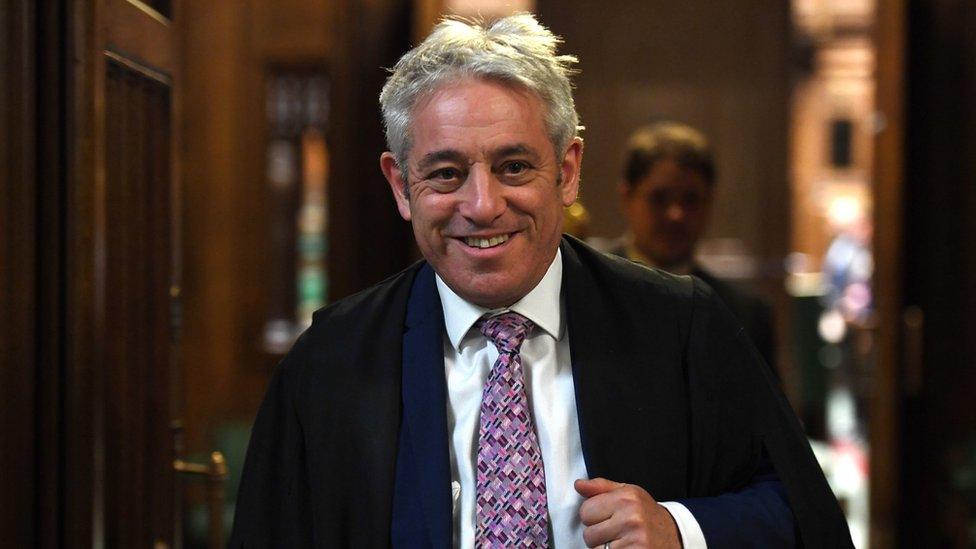
- Published31 October 2019
